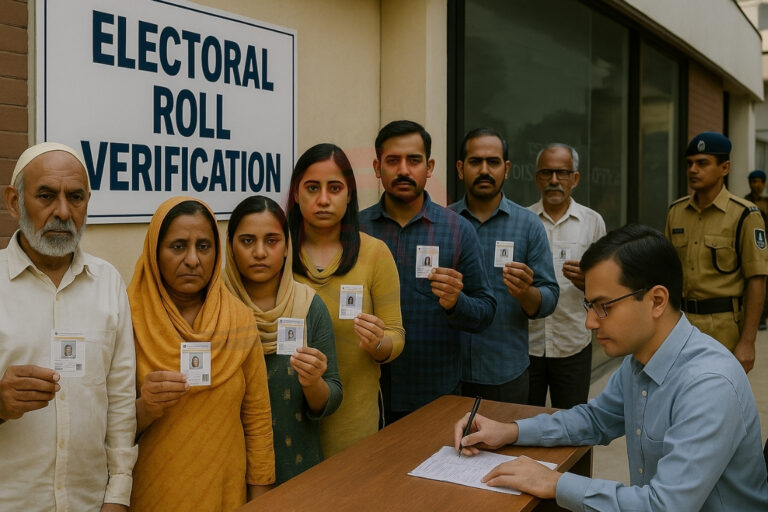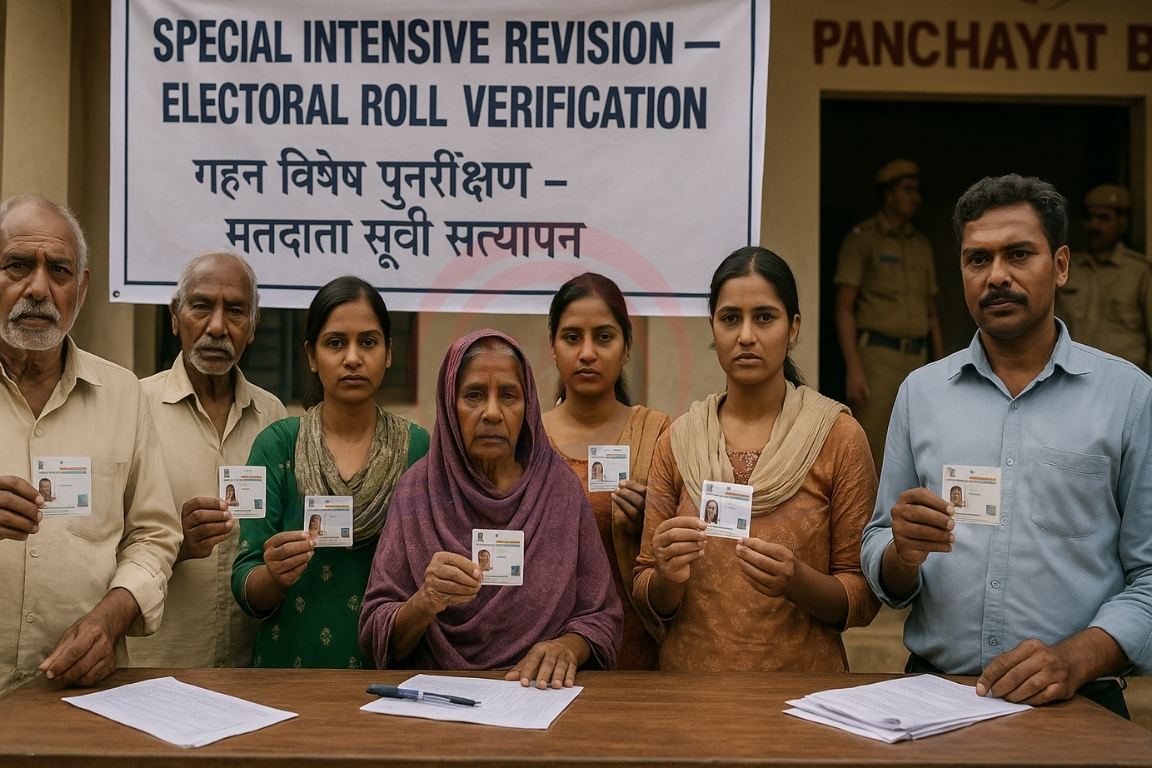The Election Commission of India (ECI) has filed a counter affidavit in the Supreme Court justifying the Special Intensive Revision (SIR) of electoral rolls in Bihar. The exercise has raised concerns over legality, transparency, and the risk of mass voter exclusion.
Background of the Issue
- The SIR exercise in Bihar aims to verify citizenship of registered voters through fresh document collection.
- ECI argues this is necessary to clean voter rolls and ensure only Indian citizens remain listed.
- However, critics say it is not based on verified complaints or legal necessity.
Key Arguments in ECI’s Affidavit
- Legal Authority: ECI cites Article 326 and Section 15 of the Representation of the People Act, 1950 to justify the SIR process.
- Citizenship Test: Voters must provide documents like passports, birth certificates, and sometimes parents’ documents to prove citizenship.
- 2003 Rolls Preferred: Voters from the 2003 electoral rolls, and their children, are being given special exemption — seen as arbitrary by critics.
Concerns Raised Over Legality
- The term “intensive revision” is not clearly defined in the law; legal basis is weak.
- Asking already verified voters to re-submit proof reverses the burden of proof without evidence of fraud.
- The process lacks data on illegal migrants, which the affidavit fails to justify.

Logistical and Practical Challenges
- 90% enumeration form coverage was done, but many without valid documents.
- Over 53 lakh voters were marked missing, migrated, or deceased without full verification.
- Data inconsistency is a concern—residence certificates exceed Bihar’s total population.
Why Exclude Aadhaar and Ration Cards?
- ECI claims Aadhaar isn’t proof of citizenship and ration cards are prone to fraud.
- Critics argue these are widely held documents and useful in absence of better records.
- ECI itself collects Aadhaar voluntarily, causing contradiction.
Conclusion:
The SIR process lacks legal clarity, overburdens voters, and may result in wrongful deletions. Unless revised, it risks becoming another flawed exercise like the NRC in Assam, raising serious concerns over voter rights and democratic integrity.





